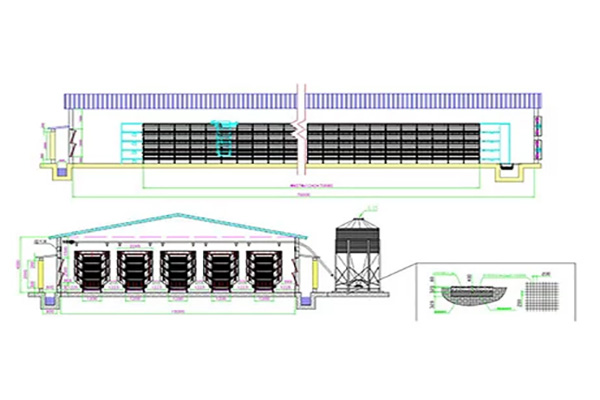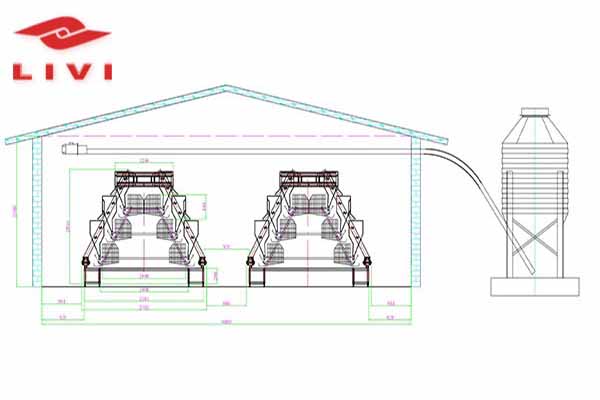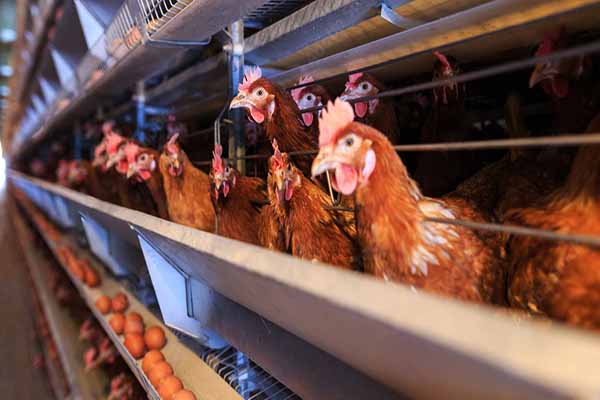Automated Solution for Manure Treatment in Uganda Chicken Farms: A Game-Changer
Time : 2025-04-24
Chicken farming has become a pivotal industry in Uganda, providing livelihoods and contributing significantly to the country’s economy. However, one challenge that has always plagued chicken farmers is the efficient treatment of chicken manure. That’s where an automated solution for manure treatment in Uganda chicken farms comes into play. In this article, we will delve into how this innovative system is revolutionizing the poultry industry in Uganda.
Understanding the Problem
Chicken manure is a highly nutritious byproduct that, when managed correctly, can be converted into valuable organic fertilizer. However, the process of treating manure can be labor-intensive, environmentally unfriendly, and often leads to the spread of diseases if not handled properly.

Uganda, like many other African countries, has faced the challenge of effective manure treatment. Traditional methods, such as open lagoons and simple composting, often result in inefficient processes and environmental damage.
Introducing the Automated Solution
The automated solution for manure treatment in Uganda chicken farms is a game-changer because it addresses all these issues head-on. This system combines advanced technology with sustainable practices to ensure that chicken manure is treated efficiently and safely.
Key Features of the Automated Manure Treatment System
- Highly Efficient: The system reduces the time and labor required for manure treatment, allowing farmers to focus on other crucial aspects of chicken farming.
- Environmentally Friendly: It minimizes the risk of pollution and reduces the emission of greenhouse gases, contributing to a healthier environment.
- Health-Safe: The automated process ensures that diseases are minimized, thereby protecting both the animals and the humans handling the manure.
- Resource Utilization: The treated manure can be converted into high-quality organic fertilizer, which can be used to enrich soil and boost crop yields.
How It Works
The automated manure treatment system typically consists of several stages, each designed to optimize the treatment process:
1. Collection
Manure is collected from the chicken houses using conveyors or automated collection systems. This step ensures that the manure is handled efficiently and with minimal disruption to the birds.

2. Segregation
The collected manure is then segregated into different components, such as solid waste, water, and other impurities. This allows for more precise treatment and recycling of valuable nutrients.
3. Treatment
Advanced treatment methods like anaerobic digestion are employed to break down the manure into nutrient-rich compost. This process not only treats the manure but also generates biogas, which can be used as an energy source.
4. Storage and Distribution
The treated compost is stored in covered bin s or silos to prevent any environmental damage. It is then distributed to farmers or sold as organic fertilizer.
s or silos to prevent any environmental damage. It is then distributed to farmers or sold as organic fertilizer.
Benefits of the Automated System
Implementing an automated manure treatment system in Uganda chicken farms offers numerous benefits:
- Economic Advantages: By producing high-quality organic fertilizer, farmers can sell the byproduct for additional income.
- Health Benefits: Reducing the presence of pathogens in manure minimizes the risk of disease outbreaks in the chicken population.
- Environmental Benefits: The system significantly cuts down on the environmental impact of chicken farming by minimizing pollution and greenhouse gas emissions.
- Resource Sustainability: It promotes the sustainable use of resources, ensuring that the land remains fertile for future generations.
Challenges and Solutions
While the automated solution for manure treatment in Uganda chicken farms is a fantastic innovation, it’s not without its challenges:
1. High Initial Costs
Setting up an automated system requires a considerable investment. However, over time, the cost savings from efficient manure treatment and the sale of organic fertilizer can offset the initial expenses.
2. Technical Know-How
Operating and maintaining the automated system requires trained personnel. To overcome this, there’s a need for education and training programs for farmers and workers.
The Future of Chicken Farming in Uganda
The adoption of an automated manure treatment system in Uganda chicken farms is just the beginning. With ongoing research and development, we can expect even more advanced and cost-effective solutions to come. The poultry industry in Uganda is set to become more sustainable, efficient, and profitable, ultimately benefiting the entire nation.
As more farmers adopt this technology, the industry will see a significant transformation. Not only will it contribute to the country’s economy, but it will also play a crucial role in ensuring environmental sustainability and improving the quality of life for rural communities.
In conclusion, the automated solution for manure treatment in Uganda chicken farms is a game-changer. It addresses the challenges associated with traditional manure treatment methods, promotes sustainability, and offers numerous economic and environmental benefits. With the right support and continued innovation, it has the potential to revolutionize the poultry industry in Uganda and beyond.











